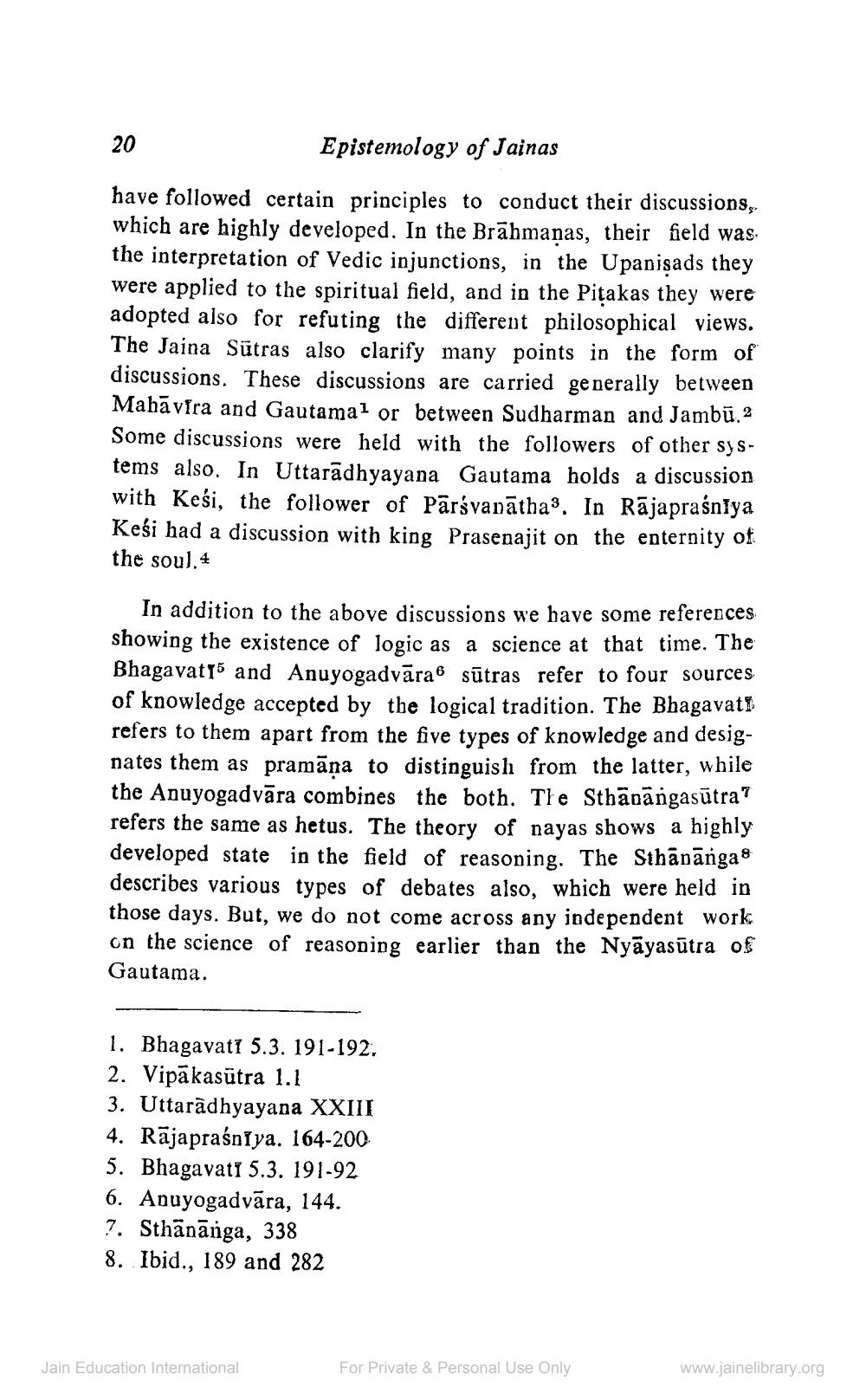________________
20
Epistemology of Jainas
have followed certain principles to conduct their discussions, which are highly developed. In the Brāhmaṇas, their field was. the interpretation of Vedic injunctions, in the Upanişads they were applied to the spiritual field, and in the Pițakas they were adopted also for refuting the different philosophical views. The Jaina Sūtras also clarify many points in the form of discussions. These discussions are carried generally between Mahāvīra and Gautamal or between Sudharman and Jambū.2 Some discussions were held with the followers of other systems also. In Uttarādhyayana Gautama holds a discussion with Keśi, the follower of Pārsvanātha3. In Rājapraśniya Kesi had a discussion with king Prasenajit on the enternity of the soul.4
In addition to the above discussions we have some references showing the existence of logic as a science at that time. The Bhagavatt and Anuyogadvāra 6 sūtras refer to four sources of knowledge accepted by the logical tradition. The Bhagavati refers to them apart from the five types of knowledge and designates them as pramāna to distinguish from the latter, while the Anuyogadvāra combines the both. Tle Sthānängasūtra? refers the same as hetus. The theory of nayas shows a highly developed state in the field of reasoning. The Sthānānga describes various types of debates also, which were held in those days. But, we do not come across any independent work on the science of reasoning earlier than the Nyāyasūtra of Gautama.
1. Bhagavati 5.3. 191-192. 2. Vipākasūtra 1.1 3. Uttaradhyayana XXIII 4. Rājapraśniya. 164-200 5. Bhagavati 5.3. 191-92 6. Anuyogadvāra, 144. 7. Sthānānga, 338 8. Ibid., 189 and 282
Jain Education International
For Private & Personal Use Only
www.jainelibrary.org




